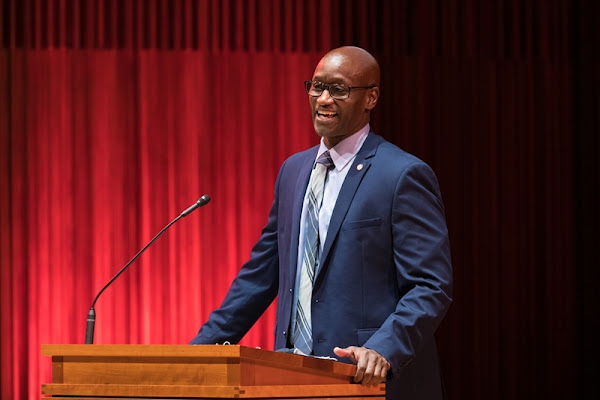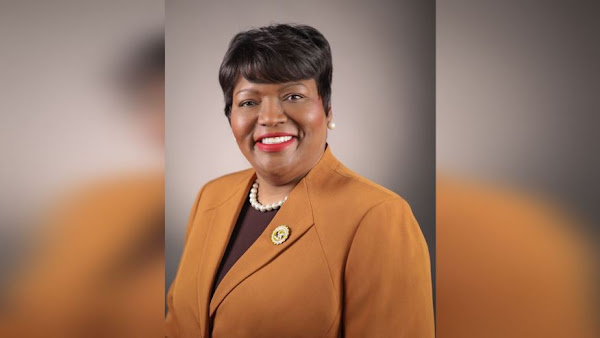Kevin Howell, chief external affairs officer at UNC Health and the UNC School of Medicine, has been named chancellor of North Carolina State University.
The appointment was announced by University of North Carolina President Peter Hans today following approval by the UNC Board of Governors. Howell succeeds Randy Woodson, who is retiring after 15 years of service as chancellor.
“Kevin Howell is a born leader with a long record of service to North Carolina, the UNC System and NC State University,” Hans said. “His deep relationships across the state have helped drive investment and growth. I am confident that he will strengthen NC State’s role as a frontier research university, keeping North Carolina competitive in the most important fields of our future.”
Howell will assume his duties on May 5; his salary will be $600,000.
Howell becomes NC State’s 15th chancellor and the third NC State alumnus to serve in the role.
“Kevin Howell is a leader with incredible connection- and relationship-building skills,” said Ed Weisiger, a member of the chancellor search committee and chair of the NC State Board of Trustees. “He is a trusted partner to those he leads and to those with whom he interacts and works. In short, Kevin simply makes organizations better and healthier by working in them. He is a great product from NC State who has shown his worth across time and in roles of ever-increasing responsibility. We are so pleased to have him return to NC State.”
As chief of external affairs for UNC Health and UNC School of Medicine, Howell leads the development and implementation of strategies shaping public policy and legislation for a health care system with 19 hospitals, more than 900 clinics, 3,000 physicians and more than 40,000 employees. He cultivates relationships with government officials and stakeholders to advance UNC Health initiatives, and directs philanthropy, institutional strategic branding, marketing, communications, and corporate and community affairs to ensure alignment with organizational goals.
Prior to his time with UNC Health, Howell served as NC State’s vice chancellor for external affairs, partnerships and economic development from 2018 to 2023. In that role, Howell managed units tasked with partnerships, economic development, the Small Business and Technology Development Center, state and local relations, and federal affairs. He led a strategic focus to build and manage relationships and economic partnerships to enhance local and global engagement to create new jobs and investments for the state of North Carolina.
Howell also served NC State as assistant to the chancellor for external affairs from 2006 to 2016. In that role, he directed the university’s legislative strategy and served as legislative liaison to state and local government agencies and elected leaders.
“We’re excited to welcome Kevin Howell back home to NC State,” said Ed Stack, chair of the chancellor search committee and vice chair of the NC State Board of Trustees. “Among an impressive group of candidates, he stood out as the strongest choice. Kevin truly exemplifies the university’s Think and Do spirit – especially in driving economic development and improving the lives of North Carolinians.”
In between stints at NC State, Howell served as senior vice president for external affairs with the University of North Carolina System. There, Howell led key external affairs priorities and initiatives to elevate the UNC System.
Before coming to NC State in 2006, Howell served as legislative liaison for two N.C. governors and worked for the N.C. Bar Association as director of governmental affairs.
Howell currently serves on the executive committee of the Greater Raleigh Chamber of Commerce as former board chair; the executive committee of myFutureNC, a non-profit that seeks to have 2 million North Carolinians hold an industry-valued credential or postsecondary degree by 2030; and the executive committee of the Association of Public and Land-Grant Universities’ Commission on Economic & Community Engagement.
Howell also serves on the board of directors for the North Carolina Symphony and the UNC Law School Foundation. He is a member of the advisory board for NC State’s Friday Institute for Educational Innovation.
A native of Shelby, N.C., Howell received his bachelor’s degree in political science from NC State in 1988 and served as student body president during his senior year. He earned his law degree from the University of North Carolina-Chapel Hill and later served as a legal clerk on the N.C. Court of Appeals.
Howell and his wife, Aleta, have two adult children.
A 13-member search committee of NC State trustees, faculty, staff, students and alumni spent five months reviewing and interviewing candidates before Hans made his selection.
Howell will take the helm of North Carolina’s largest university, with about 39,000 students. Long admired for its strengths in engineering and agriculture, the university has emerged as a national leader in biotechnology, nanotechnology, proteomics, nonwoven textiles and other fields of study – such as food safety, biomedical research and artificial intelligence – that affect the health and livelihoods of people in North Carolina and across the globe. Its fields of study prepare students for the challenges and opportunities of life in the 21st century.
With its state-of-the-art labs and classrooms and its unique partnerships with government and industry, NC State’s Centennial Campus is the model for university research parks across the nation.


















